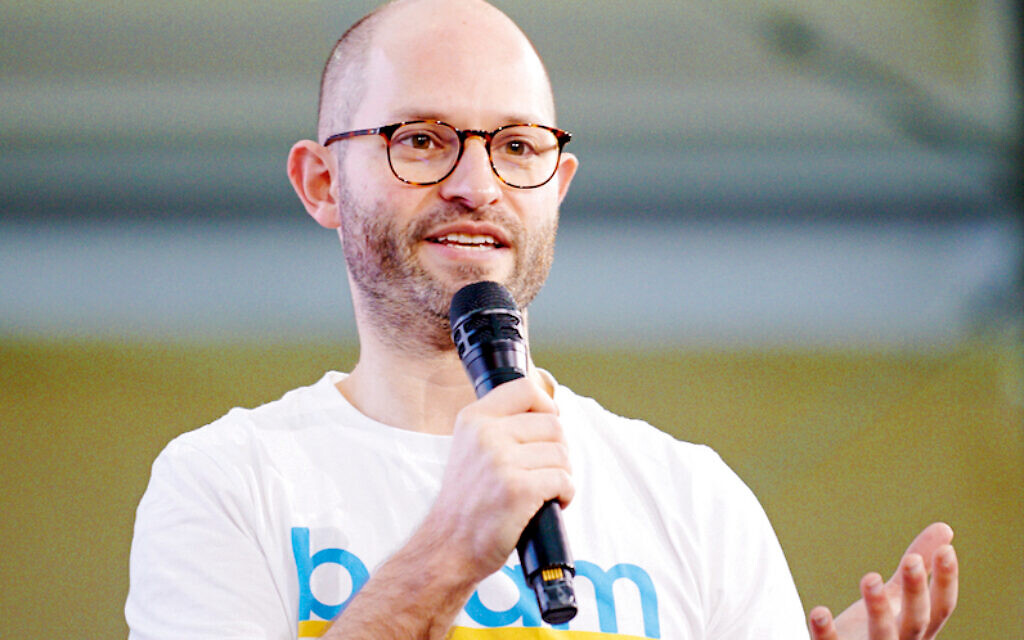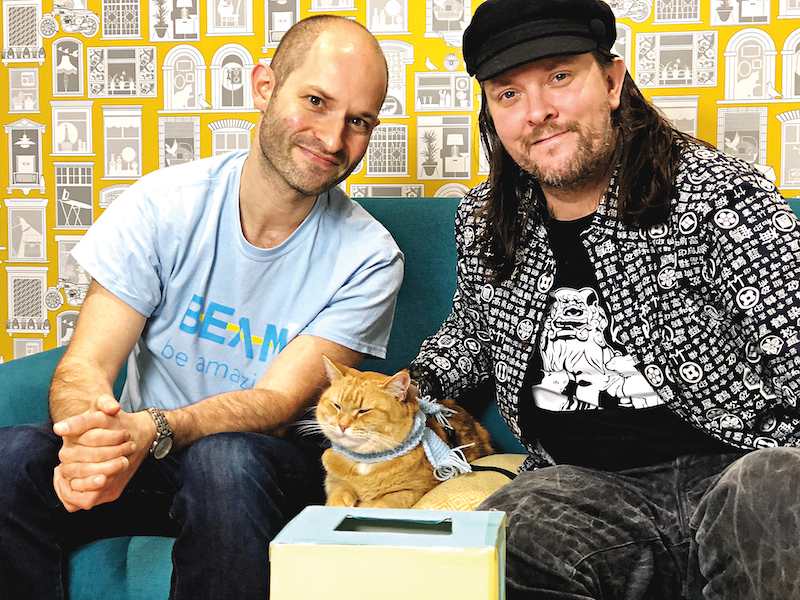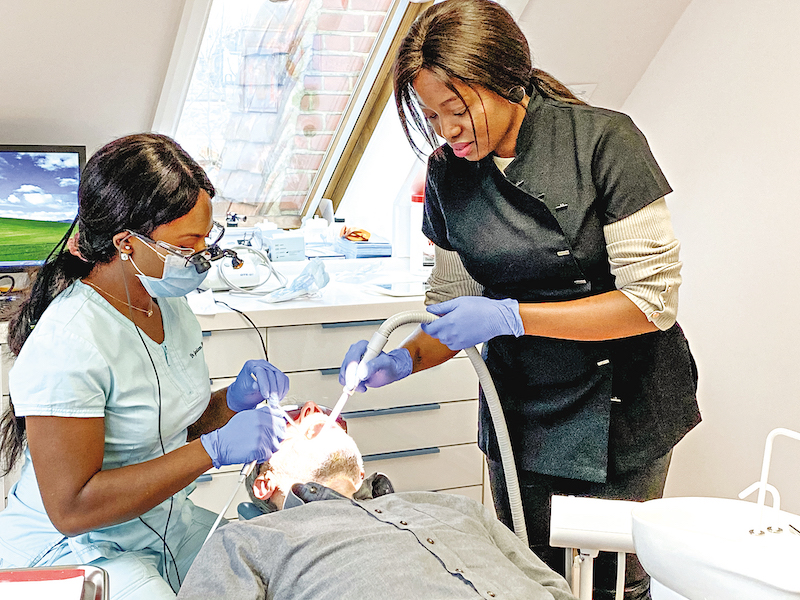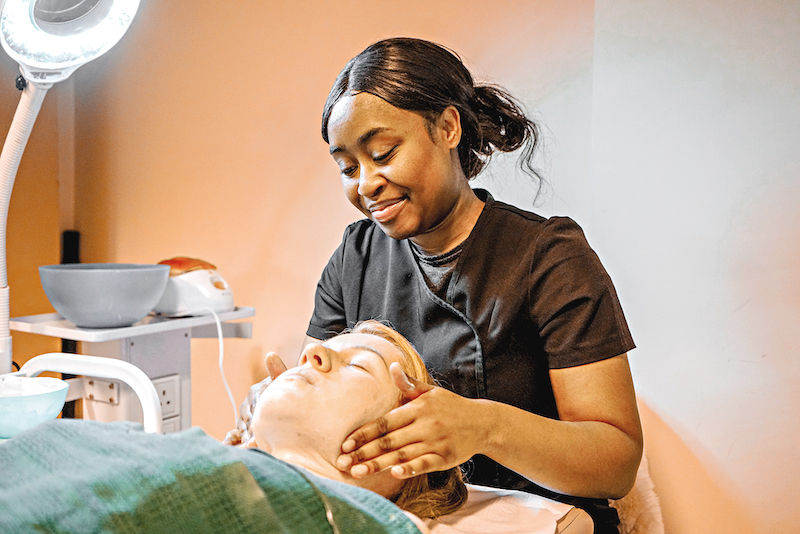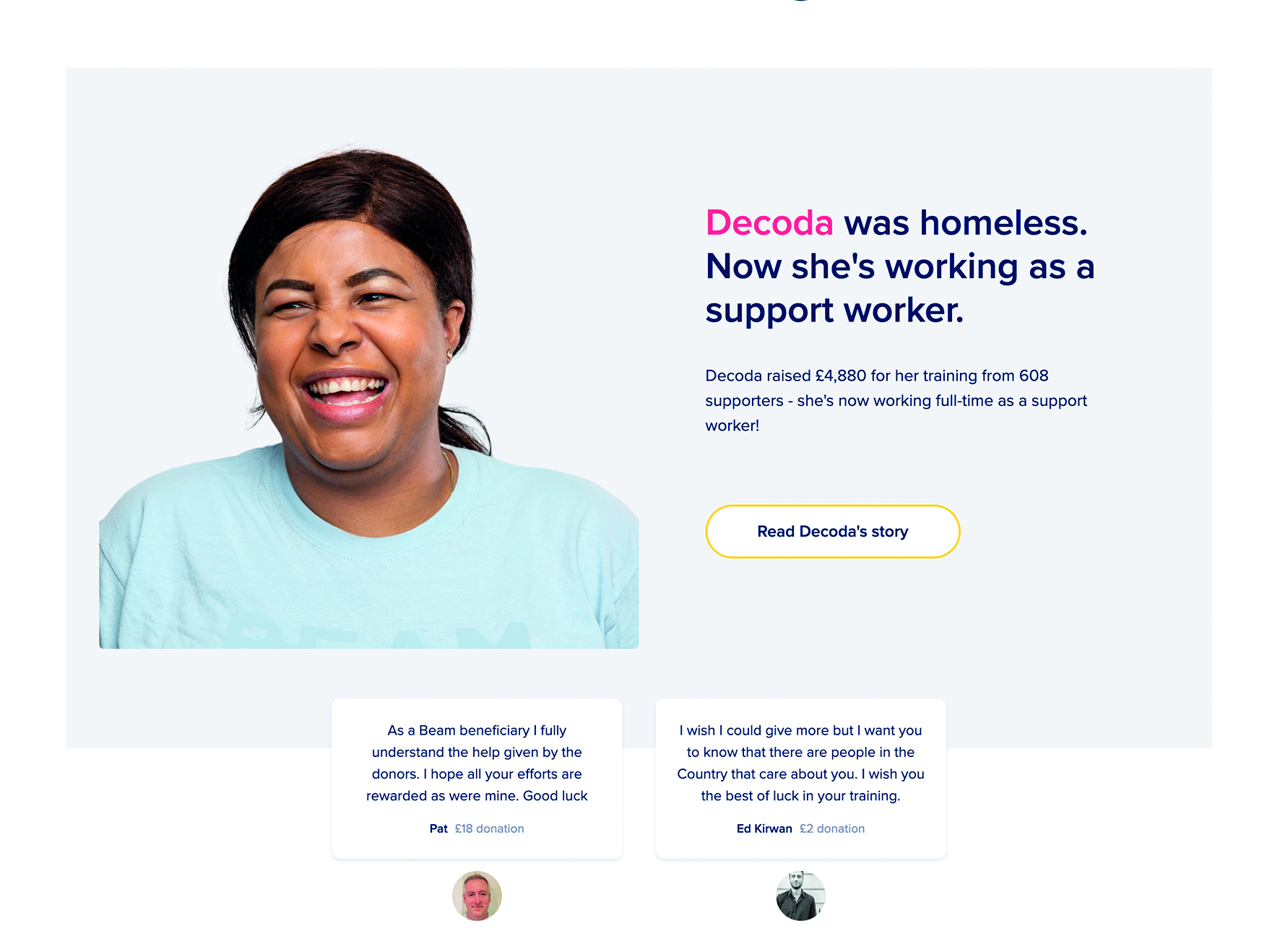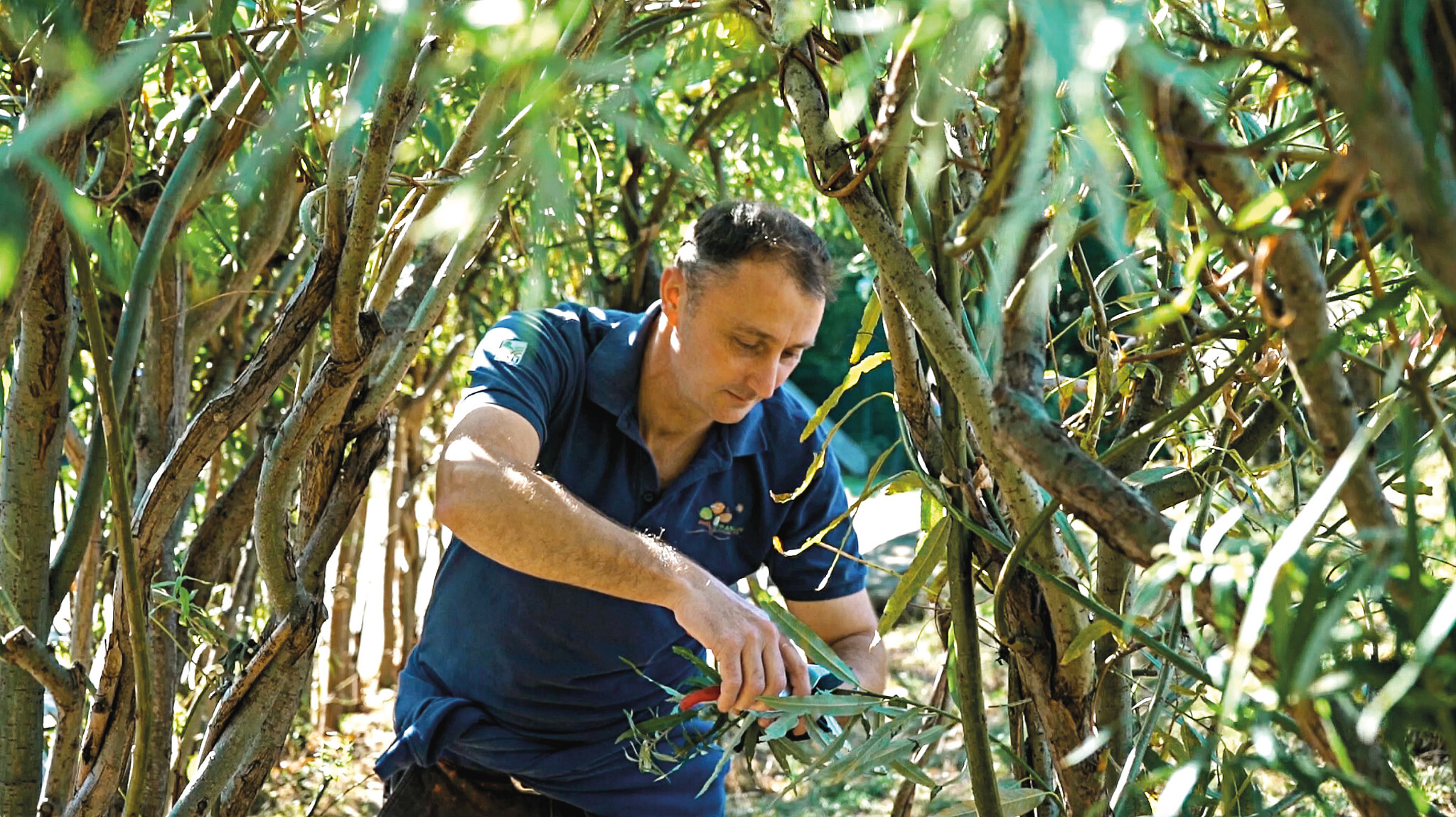Start-up steps up to the covid challenge
Alex Stephany is the brains behind crowdfunding platform Beam, which recently won national recognition as a provider of support for the homeless
COVID-19 has been a big driver for enabling and accelerating digital health solutions at a time when they have never been more needed.
An increasing number of innovators have been switching their focus to the crisis, showing what they can do to help via the digital delivery of care, or tools to support frontline health workers. And outside of the clinical setting the UK tech sector is rapidly responding to support the mental health of those struggling with the unprecedented and overwhelming challenges the pandemic has caused.
“Mental health is an incredibly complex issue that should be addressed through a combination of technology – which brings with it all kinds of efficiencies and scale – and personalised services,” says social enterprise entrepreneur Alex Stephany, the founder of multi award-winning start-up, Beam, which supports homeless people.
Get The Jewish News Daily Edition by email and never miss our top stories Free Sign Up
Last month, Stephany was a winner in the TechForce19 challenge, a competition launched as a joint effort by NHSX (the unit that brings together the Department of Health, NHS England and NHS Improvement), the AHSN Network (which brings together the 15 Academic Health Science Networks in England) and the GovTech venture firm PUBLIC to identify and fund companies that are creating digital support solutions for those most vulnerable during the coronavirus.
Launched in 2017, Beam is a crowdfunding platform which supports homeless people through training and into stable, paid work. It has recently turned its attention to helping the homeless during the crisis.
The platform’s current focus is on helping people into roles facing critical shortages, and as part of its response, Beam, which was initially funded by the Mayor of London, is now crowdfunding a Coronavirus Emergency Fund and co-ordinating the provision of emergency care packages to London’s homeless.
“It’s widely documented that homeless people in particular are more likely to struggle with mental health,” says Stephany, 38. “Covid-19 has only compounded these issues. This could be anxiety over feeding one’s children or contracting the virus. Many of the people we support already have underlying health conditions, which means they aren’t allowed to leave their homes. This has resulted in feelings of isolation.”
He adds: “I’m hopeful that we’ll start to see new technologies emerge which are designed specifically for vulnerable or disadvantaged individuals. Wealthy people take for granted the amazing services they can get through their phone from Spotify to Uber to Deliveroo. Our goal is to bring the best of private sector technology to some of the most disadvantaged people, so that technology can work for everyone.”
TechForce19 was launched in March as the UK went into lockdown. It is aimed at funding innovations that offer a digital way to support vulnerable people who need help. PUBLIC was co-founded by Daniel Korski, the ex-deputy head of policy at Downing Street and current vice-president of the Jewish Leadership Council.
Beam was one of 18 digital solutions to be selected as a winner. The chosen companies were recently displayed on Nasdaq Tower in New York’s Times Square as part of the electronic marketplace’s initiative to highlight innovative companies and bodies worldwide that are tackling Covid.
Mark Lazar, director of programmes at PUBLIC, says tech companies have increasingly been turning their attention towards mental health.
“There is a super established set of categories around things that improve mental health without pointing specifically at it, such as wellness, nutrition, exercise and meditation type of things. This is a very well-defined industry – players such as Headspace, Calm and others that have been doing very well for a while, and I would put those in the category of mental health but without it pointing directly at it. Even before Covid, we were seeing an increasing number of companies focusing more directly on mental health such as delivering mental health services and therapies online.
“There is also a bunch of tech around finding and accessing communities of people to support. Companies are pivoting their services during these times to do things that will result in better mental health.”
Beam partners with local authorities and homeless charities, then ensures that goods are funded, delivered and documented. The care packages are flexible and contain whatever is most needed for that individual and their family. “We’ve been able to fund a laptop and electronic tablets for homeless single mum Sonia, so her kids can do their school work from home,” says Stephany.
A lawyer turned serial entrepreneur, and author (The Business of Sharing, published by Macmillan, a book which led him to advise the Mayor of Seoul on how to use sharing models to solve social problems), Stephany was inspired to set up Beam while on his commute to work when he would walk past the same homeless man daily.
Stephany, who remembers learning at cheder about Maimonides’ eight degrees of charity, began to think about what could have made a meaningful difference to his life.
Since its inception, Beam – and Stephany – have picked up a host of accolades including last year’s MIT–Inclusive Innovation Challenge Best Financial Inclusion Organisation in Europe, Best ‘Tech for Good’ start-up in Europe at The Europas 2019, plus the 2018 London Homelessness Awards and an award for Best use of Technology in homelessness. This year, he was named one of NatWest SE100’s Top 25 Trailblazing Newcomers.
Stephany has achieved a lot. As the former CEO of start-up JustPark, he grew revenue more than 10-fold in three years, raised funding from Index Ventures, and closed a £3.75 million crowdfunding campaign – then the largest ever equity crowdfunding for a start-up. He also gave a prestigious TED talk in Brighton last year. But he felt he wanted to do something with more social impact.
“It’s high time that everyone in society had the opportunity to benefit from technology. At Beam, we can use tech to directly contribute to getting people out of homelessness. But most importantly, we’re giving people the tech to let them take control of their lives and progress towards true independence.”
At the time of writing, £894,331 has flowed through the platform funding 246 campaigns, and 74 Beam ‘members’ have successfully entered skilled work, with a much larger number training or waiting to start their training once lockdown is over.
Beam has yet to be supported by any major donors from the Jewish community. “I know it’s only a matter of time as we are such a philanthropic community and Beam’s approach is at the core of the highest form of tzedakah – giving people the support to support themselves.”
Digital tools have become essential for supporting the nation’s well-being at this time. According to reports, mental health-related apps have been downloaded more than one million times since coronavirus hit Britain.
“I think digital solutions will continue to play a huge role in the years to come,” acknowledges Stephany.
“While technology plays an important part of our service, it’s not the answer to all of our problems. This is why Beam is a combination of technology and human-based, personalised services. One without the other is probably unlikely to work, at least for vulnerable people. I think a lot of interesting innovation and services made available for vulnerable people in the next 10 or 20 years will be services that fuse technology and data with human-based services that are personalised and also underpinned by technology.”

Thank you for helping to make Jewish News the leading source of news and opinion for the UK Jewish community. Today we're asking for your invaluable help to continue putting our community first in everything we do.
For as little as £5 a month you can help sustain the vital work we do in celebrating and standing up for Jewish life in Britain.
Jewish News holds our community together and keeps us connected. Like a synagogue, it’s where people turn to feel part of something bigger. It also proudly shows the rest of Britain the vibrancy and rich culture of modern Jewish life.
You can make a quick and easy one-off or monthly contribution of £5, £10, £20 or any other sum you’re comfortable with.
100% of your donation will help us continue celebrating our community, in all its dynamic diversity...
Engaging
Being a community platform means so much more than producing a newspaper and website. One of our proudest roles is media partnering with our invaluable charities to amplify the outstanding work they do to help us all.
Celebrating
There’s no shortage of oys in the world but Jewish News takes every opportunity to celebrate the joys too, through projects like Night of Heroes, 40 Under 40 and other compelling countdowns that make the community kvell with pride.
Pioneering
In the first collaboration between media outlets from different faiths, Jewish News worked with British Muslim TV and Church Times to produce a list of young activists leading the way on interfaith understanding.
Campaigning
Royal Mail issued a stamp honouring Holocaust hero Sir Nicholas Winton after a Jewish News campaign attracted more than 100,000 backers. Jewish Newsalso produces special editions of the paper highlighting pressing issues including mental health and Holocaust remembrance.
Easy access
In an age when news is readily accessible, Jewish News provides high-quality content free online and offline, removing any financial barriers to connecting people.
Voice of our community to wider society
The Jewish News team regularly appears on TV, radio and on the pages of the national press to comment on stories about the Jewish community. Easy access to the paper on the streets of London also means Jewish News provides an invaluable window into the community for the country at large.
We hope you agree all this is worth preserving.
-
By Brigit Grant
-
By Laurent Vaughan - Senior Associate (Bishop & Sewell Solicitors)
-
By Laurent Vaughan - Senior Associate (Bishop & Sewell Solicitors)
-
By Laurent Vaughan - Senior Associate (Bishop & Sewell Solicitors)
-
By Laurent Vaughan - Senior Associate (Bishop & Sewell Solicitors)


